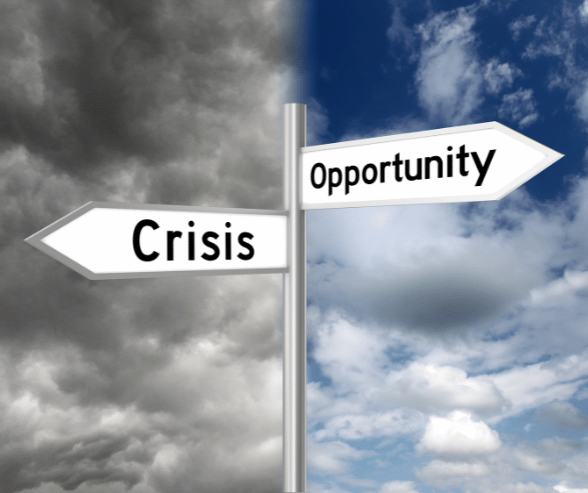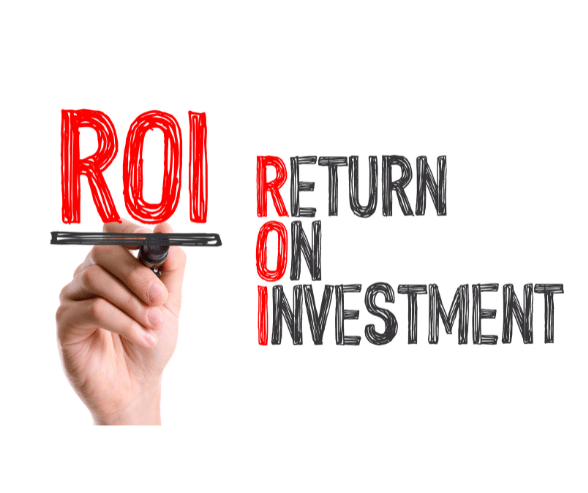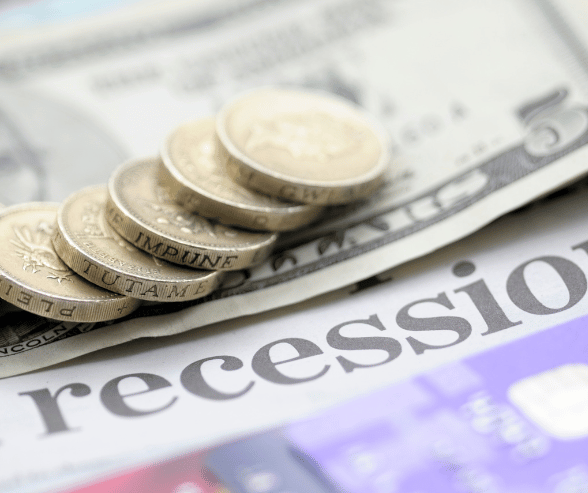When there is an economic downfall, people usually panic about taking the next step, with a question in their mind ‘ How to do marketing in a recession?’
I believe every business faces numerous challenges to sustain their market presence and profitability. Recessions can significantly impact consumer behavior and spending patterns, requiring companies to adapt their marketing strategies to remain competitive.
However, a recession doesn’t necessarily mean a death sentence for companies. By adopting strategic marketing approaches tailored to the unique circumstances of a recession, businesses can weather the storm and even thrive in the face of adversity.
In this article, I will be sharing some effective strategies on how to market during a recession and make the most of the prevailing economic conditions.
How Can Recessions Impact Customers’ Minds?
Hearing the word recession, customers restrict themselves from overspending, impacting their spending thoughts significantly. Thus an economic collapse may force them towards purchasing only the essentials. This behavior can lead to decreased sales for non-essential goods and services.
Customers may also experience anxiety and uncertainty about their financial situation during a recession. This can cause them to be more price-sensitive and seek out deals and discounts. In contrast, customers may also choose to spend more on luxury items as a way to cope with the stress of the recession.
Furthermore, recessions can change customers’ perceptions of brands. Brands that are perceived as financially stable and trustworthy may gain more customers during a recession. On the other hand, brands that are seen as extravagant or wasteful may lose customers.
Is it Right to Do Marketing During a Recession?
Marketing during a recession is a highly debated topic. Some businesses believe that it is best to cut back on marketing expenses during an economic downturn, while others believe that marketing is even more crucial during these times.
There are several reasons why it may be beneficial to continue marketing during a recession.
First, your competitors may be cutting back on their marketing efforts, giving your business an opportunity to stand out and gain market share.
Second, consumers may be more price-sensitive during a recession, making it important to promote value and discounts in your marketing messages.

Finally, a recession may also be a good time to focus on building brand awareness and loyalty through targeted marketing campaigns.
However, it is important for you to be strategic with your marketing efforts during a recession. It may be necessary to adjust your marketing budget and focus on cost-effective tactics such as email marketing, social media, and content marketing. It is also important to monitor your return on investment (ROI) and adjust your tactics accordingly.
Best Marketing Strategies in a Recession
Let me share some marketing strategies that can be effective during a recession to stay top of mind and maintain brand awareness:
1. Focus on Your Existing Customers
The first strategy you should look into is to focus on your existing customers. During a recession, it is essential to retain your existing customers. They are already familiar with your brand and products, and it is easier to retain them than to acquire new ones. Offer them discounts or promotions to encourage them to continue purchasing from you. You can also offer them loyalty programs or exclusive deals to make them feel valued.

2. Increase Your Online Presence
With more people spending time online, it is crucial to increase your online presence. Invest in digital marketing, social media, and email marketing to reach a wider audience.
Use search engine optimization (SEO) to improve your website’s ranking on search engines and create engaging content to attract visitors to your website. Semrush is a tool that can help businesses with SEO, content marketing, social media, and more.
3. Plan to Evaluate Your ROI
During a recession, it’s important to evaluate ROI (Return on Investment) to see where your business is spending money and where it can cut back.
Before evaluating ROI during a recession, it’s important to set clear goals. Are you trying to cut costs, increase revenue, or both? Once you have established your goals, you can determine what metrics to measure to achieve them.

By setting specific, measurable, achievable, relevant, and time-bound (SMART) goals, you can develop a clear plan to evaluate your ROI during a recession. This will help you make data-driven decisions and prioritize where to make changes to improve your business’s financial health.
4. Create Value-based Content
During recessionary periods, it is essential to create content that provides value for your customers. Focus on creating solutions-oriented content and engaging with your customers to understand their needs.
Content such as case studies, tutorials, webinars, and podcasts can help build trust between you and your customer base. Additionally, make sure your content is SEO optimized so you can reach the audience who is looking for the topics you are covering.
5. Focus on Your Unique Selling Proposition
Identify your unique selling proposition (USP) and highlight it in your marketing efforts. Your USP can help you stand out from your competitors and attract customers. Make sure your marketing message is clear, concise, and consistent across all channels.
Here are some tips for focusing on your USP during a recession:
- To craft an effective USP, you need to understand what your customers want and need. Take the time to research your target market and find out what motivates them to buy. This will help you create a USP that speaks directly to their needs.
- You can’t create a USP without knowing what your competition is doing. Analyze your competitors’ strengths and weaknesses to identify opportunities for differentiation. Look for gaps in the market that you can fill with your unique offering.
- Your USP should emphasize your strengths and what you do better than anyone else. This could be your quality, your speed, your customer service, or anything else that sets you apart.
- Once you have a strong USP, you need to communicate it effectively to your target market. Use your USP in your marketing messages, on your website, and in your sales pitches. Make sure your USP is consistent across all channels.
6. Provide Exceptional Customer Service
During a recession, customers are more likely to stick with a business that provides excellent customer service. Make sure your team is trained to handle customer inquiries and complaints promptly and professionally. Respond to customer feedback and reviews, and use it to improve your products or services.

7. Use Data to Inform Your Marketing Decisions
Using data analytics to track your marketing efforts can help you identify which strategies are working and which are not. This information can be used to adjust your marketing tactics and optimize your ROI.
By analyzing customer data, you can personalize your marketing messages and offer tailored promotions to specific segments. Semrush is a popular tool that can help businesses track their rankings and performance, providing valuable insights into their online presence.
8. Create a Referral Program
Referral programs are a great way to encourage satisfied customers to spread the word about your business. By offering incentives for referrals, such as discounts or freebies, you can generate new leads and increase sales.
Referral programs can also help you build a loyal customer base, as customers who refer others are often highly satisfied with your products or services.
9. Attend Virtual Events
With the pandemic, many in-person events have been canceled or postponed. However, there are many virtual events available. Attending relevant virtual events can help you network and reach a wider audience.

You can also host your own virtual events, such as webinars or workshops, to showcase your expertise and engage with your audience. Virtual events can be a cost-effective way to connect with potential customers and build your brand.
10. Provide Educational Content
During a recession, people may be more interested in learning how to save money or improve their finances. Creating educational content that provides value to your audience can position your business as a thought leader in your industry.
You can create blog posts, videos, infographics, or e-books that address your customers’ pain points and offer solutions. By providing valuable content, you can build trust with your audience and increase brand awareness.
Using Semrush for Marketing During a Recession
Using Semrush as the main tool for marketing during a recession offers several benefits:
- Comprehensive Insights: Semrush provides you a wide range of data and insights, enabling businesses to make informed decisions based on market trends, competitor analysis, and consumer behavior.
- All-in-One Solution: Semrush offers you a comprehensive suite of tools for SEO, PPC, content marketing, and more. This streamlines the marketing process and eliminates the need for multiple tools.
- Competitor Analysis: Semrush allows your businesses to analyze their competitors’ strategies, identify opportunities, and adjust their own marketing efforts accordingly.
- Data-Driven Decision Making: Semrush’s analytics and tracking tools provide valuable data for monitoring and optimizing marketing campaigns, ensuring your businesses can make data-driven decisions.
- Time and Cost Savings: By utilizing Semrush’s tools, your businesses will save time and resources. This can be done by streamlining their marketing efforts, automating workflows, and gaining actionable insights.
- Continuous Improvement: Semrush’s ongoing updates and improvements ensure that your business has access to the latest marketing insights and tools, keeping its strategies up to date during a recession.
BONUS: If you want to know more about Semrush you can read our Semrush Review.
Do Not Stop Marketing
During a recession, it may be tempting to cut back on marketing expenses to save money. However, this can be a mistake. By continuing to market your business, you can stay top of mind with customers and maintain brand awareness.
In fact, a recession may be a good time to focus on building brand loyalty and awareness through targeted marketing campaigns. By providing value to your customers and promoting discounts and promotions, you can attract new customers and retain existing ones.

To make the most of your marketing efforts during a recession, it is important to be strategic and focus on cost-effective tactics such as email marketing, social media, and content marketing.
Let’s take Red Bull as an example. Whether it is recession or winter, you will see people buying red bull all around the year. The brand has a continuously followed marketing strategy by sponsoring and conducting events. They have promotional girls roaming around in a fancy mini Cooper and doing free sampling to the public, even when it’s the recession.
Related Reads:
Conclusion: How To Do Marketing In A Recession
Marketing during a recession requires businesses to adapt their strategies to align with changing consumer behavior and economic conditions. By understanding the impact of a recession, developing recession-proof tactics, adapting messaging, embracing digital marketing, seeking collaboration, and monitoring marketing efforts, businesses can successfully navigate these challenging times and emerge stronger than before.
FAQs: How To Do Marketing In A Recession
During a recession, consumers tend to spend less money, which can make it more difficult for businesses to generate revenue. As a result, many businesses reduce their marketing budgets, which can lead to decreased visibility and sales.
You can measure the effectiveness of your recession marketing strategy by tracking metrics such as website traffic, social media engagement, and sales.
While it may be tempting to reduce your marketing budget during a recession, doing so can lead to decreased visibility and sales. Instead, consider reallocating your budget to focus on more cost-effective marketing strategies.
Semrush offers a variety of tools to help businesses develop and execute effective recession marketing strategies, including keyword research, content creation, social media management, and advertising.


